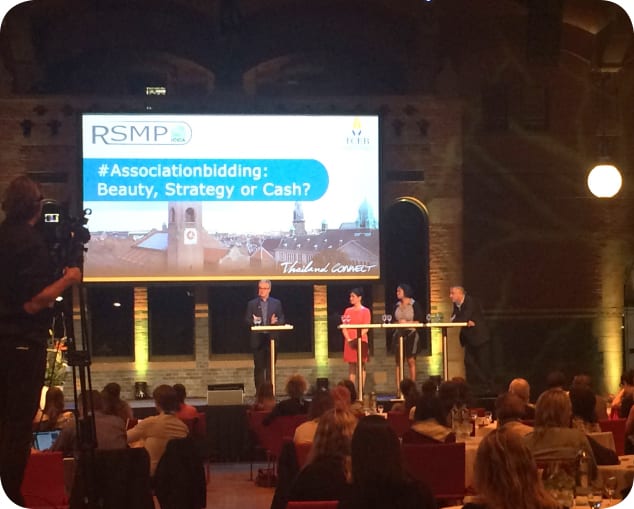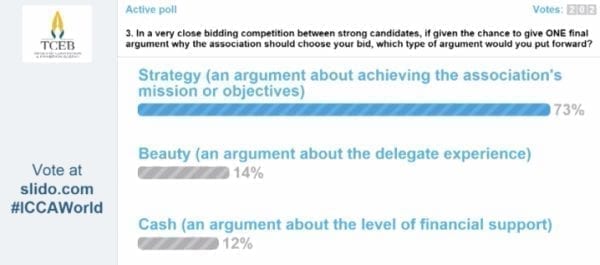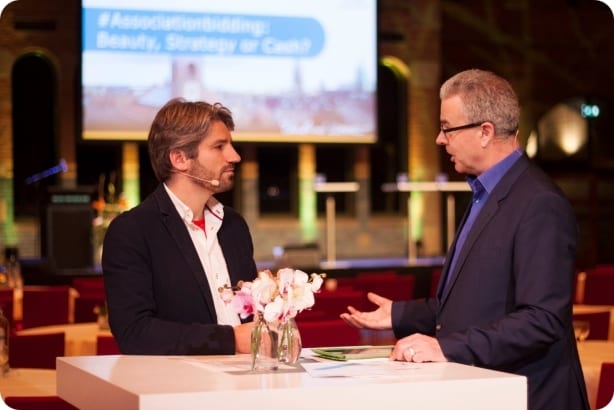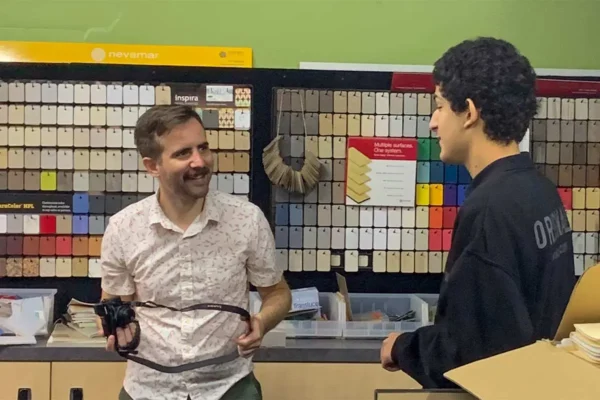Strategic objectives are crucial in successful association bidding, emotional factors are still important in the final decision, but associations are paying even more attention to their bottom-line results.
In an International Congress and Convention Association (ICCA) hybrid workshop, broadcast live from the ICCA Research, Sales and Marketing Program (RSMP) in the Beurs van Berlage in Amsterdam, association leaders and leading suppliers in the international association meetings industry discussed the latest trends in bidding for association meetings. The hybrid workshop was facilitated by Live Online Events (LOE) and sponsored by the Thailand Convention & Exhibition Bureau.

Over 140 ICCA RSMP delegates from 35 countries joined the session live in the Beurs van Berlage, over 30 ICCA members joined live from a satellite meeting in Thailand, and almost 400 participants from all over the world joined online using hashtag #AssociationBidding.
The session was called “#AssociationBidding: Beauty, strategy or cash?” The discussion was led by a discussion panel of two associations and one PCO, and was moderated by ICCA CEO Martin Sirk:
- Juan José García (Faculty Leader), director of marketing & sales, Barceló Congresos and 1st vice president and treasurer on the ICCA Board of Directors
- Natasha Joyner, events manager, World Obesity Federation
- Mireille Swakhoven, congress services manager, FIP (International Pharmaceutical Federation)
An online survey amongst the 20 top cities in the ICCA rankings showed that 100 percent of the convention bureaus respondents felt associations are more concerned about financial bottom-line results than was the case five years ago. But a live poll amongst both the online- and live audience (202 votes) showed that in a very close bidding competition between strong candidates, 75 percent would choose an argument for achieving the association’s mission or objectives (“strategy”) as the one final argument why an association should choose their bid. Only 14 percent said they would give an argument about the delegate experience and destination’s appeal (“beauty”) and 12 percent would give an argument about the level of financial support (“cash”).

From emotional to rational
ICCA CEO Martin Sirk commented, “Our panel agreed that in the old days, the bidding process used to be all about the appeal of the destination and winning bids by playing into the emotions of the decision makers. In the last 10 years, the decision-making process for choosing association meeting destinations has changed from emotional to rational, but the final decision is still heavily influenced by trust and relationships. It is not enough to only fulfil the logistical needs of accessibility, infrastructure and accommodation of an association meeting, you need to have an understanding about the psychology and strategy of the association in order to be successful in bidding.”
Subventions
The discussion also touched on the topic of subventions. “We as suppliers have made a big mistake: We have changed our marketing budget to “event support” budget, meaning subventions,” said Juan Jose Garcia. “Our industry should not accept subventions to play an important role in the decision-making processes. In order to be successful in bidding, we as suppliers need know our clients. We have to become a strategic partner of the associations: We have to align our bids with the mission and objectives of the association and help to fulfil them. We should help them to boost delegates and help them to identify sponsors. Competing on price is the price you pay for not knowing your clients”.
Research and Big Data
The panel concluded that suppliers need to build a relationship with their potential clients by researching the process, mentality and decisive factors in order to be successful in association bidding. Big data plays an important role in this process.
Juan Jose Garcia said, “Big Data has changed our business. We know a lot about associations and association executives before we approach them. With ICCA’s new Big Data Search ICCA member-suppliers can identify key leaders in intellectual areas of expertise and by geographical location, using Google Scholar and Microsoft Academic search. This is crucial to identify potential local ambassadors who can join a supplier in setting up a successful bid which meets the strategic objectives of the association”

Beyond bidding
The future of association meetings lies in creating your own events and creating unusual partnerships, according to Martin Sirk, “In regions like the Middle East, we see that suppliers are helping the local scientific industry to create new regional events. Also, we see examples of leading destinations setting up new partnerships. For instance, Vienna and Barcelona are making shared bids for medical associations for which they prepare multi-year proposals in both destinations. The World Energy Alliance is bidding for energy-related meetings and destinations are in a friendly competition within this alliance. Other examples of these alliances are BestCities and the World PCO Alliance. These developments go beyond successful bidding, and could make an interesting topic for our next hybrid session!”
Recordings of the hybrid workshop and full survey results are available on www.iccaworldlive.org.





























